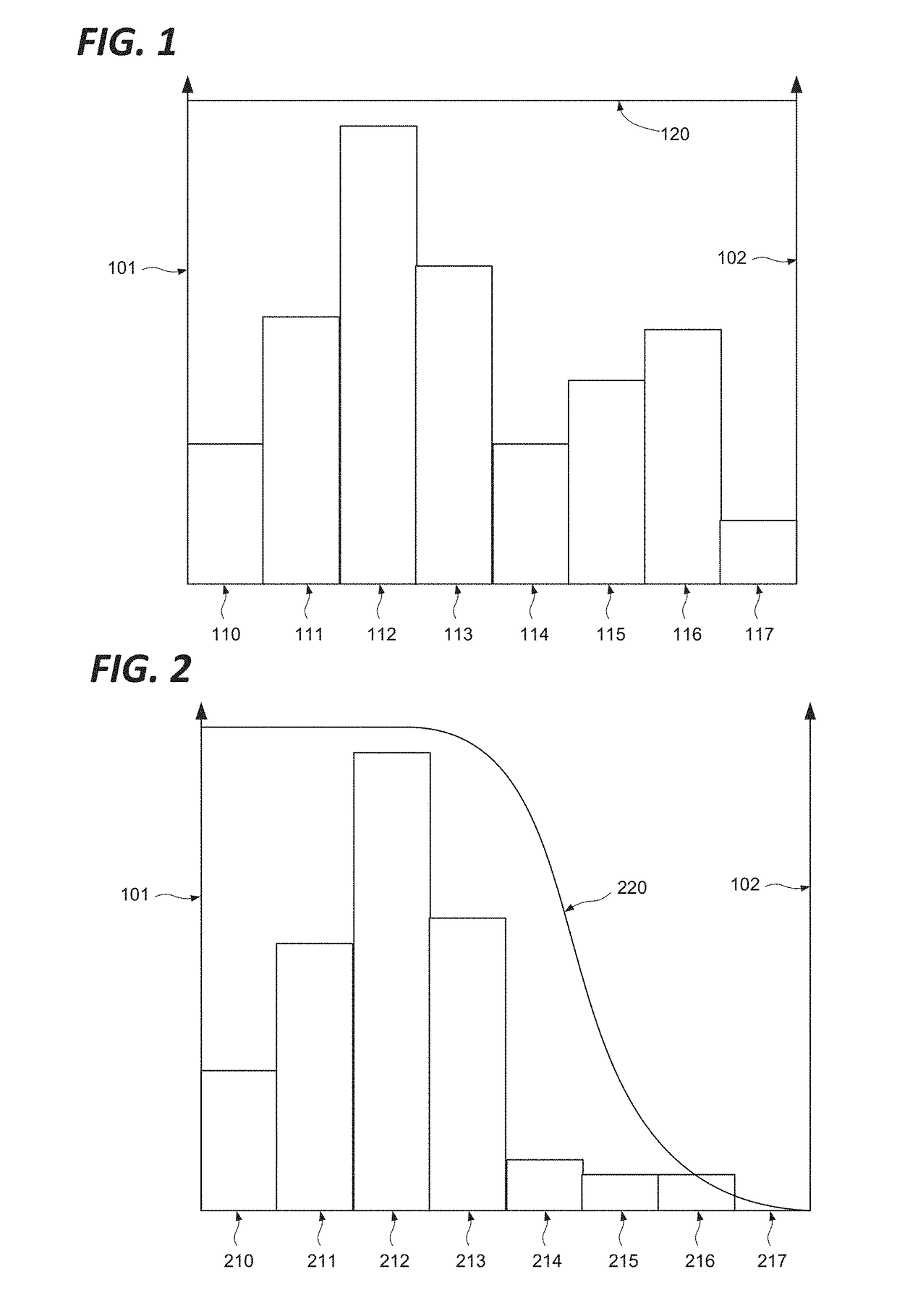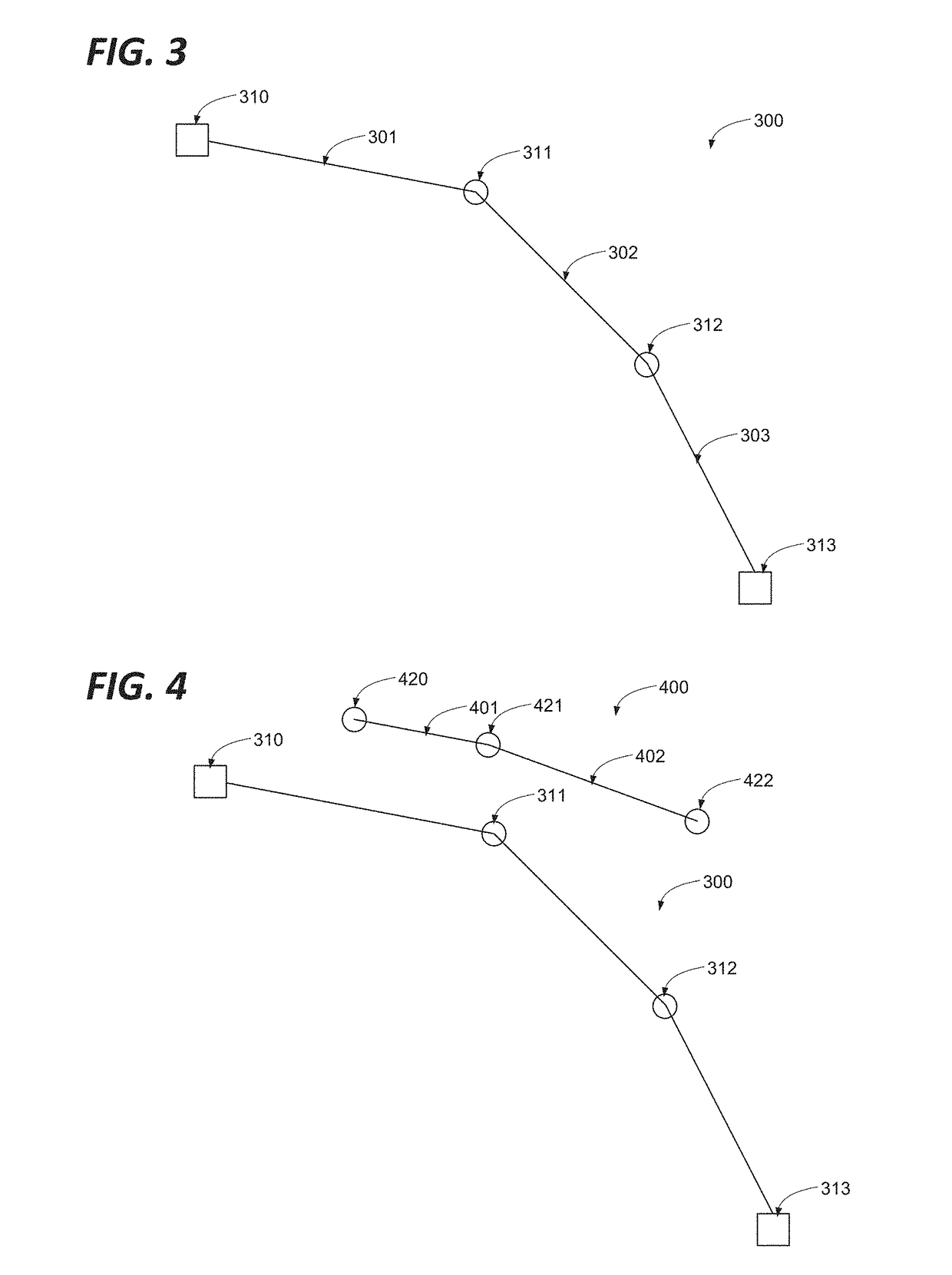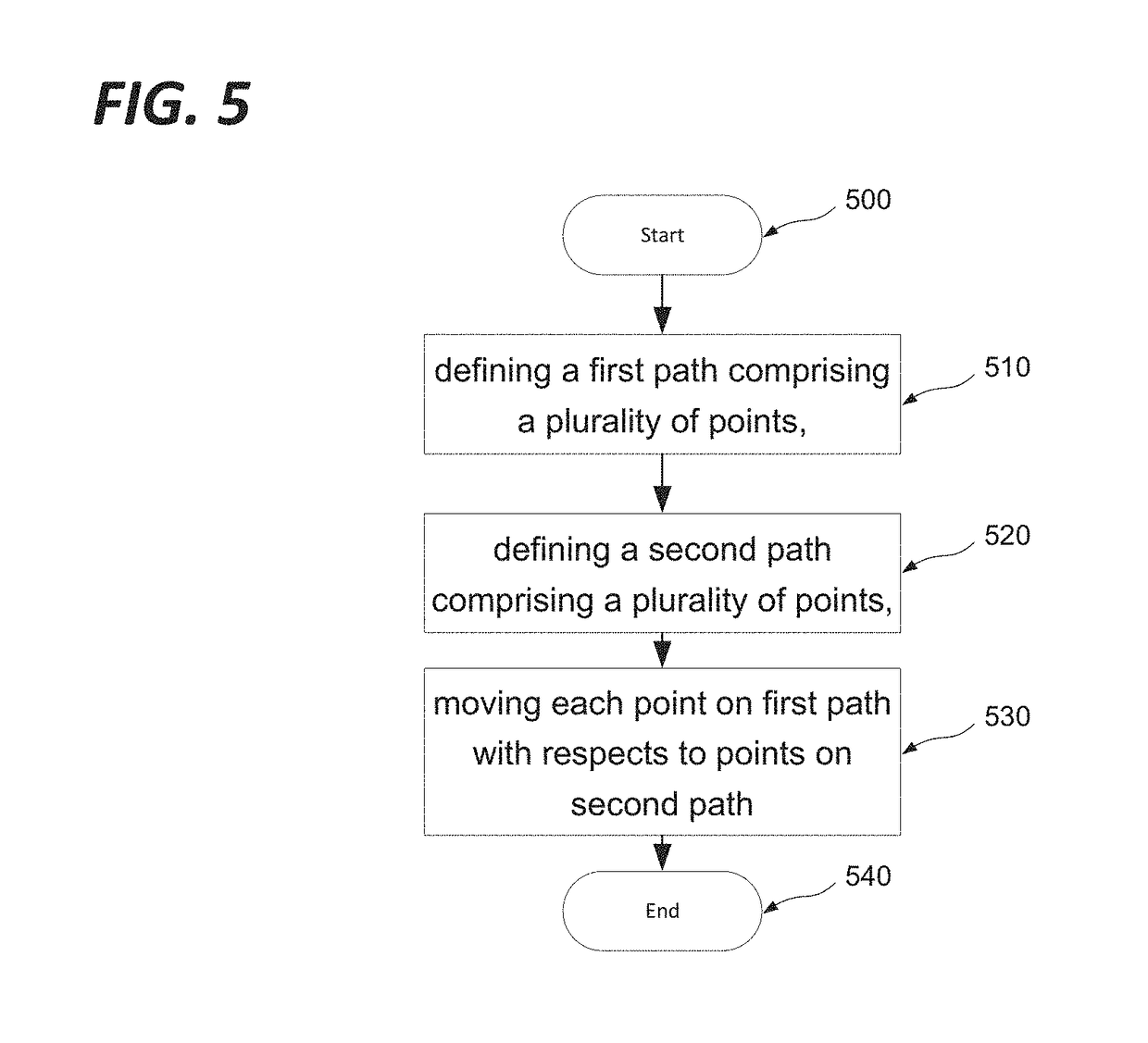Curve editing mechanism
a curvature and editing mechanism technology, applied in the field of curvature definition, can solve the problems of not being able to display the original material colour and generally being clumsy in the approach
- Summary
- Abstract
- Description
- Claims
- Application Information
AI Technical Summary
Benefits of technology
Problems solved by technology
Method used
Image
Examples
Embodiment Construction
[0044]FIG. 3 shows a curve to which embodiments may be applied. As shown in FIG. 3 there is provided a curve 300, defined by three straight sections 301, 302, 303. Sections 301 and 302 intersect at point 311, and sections 302 and 303 intersect at point 312. Section 301 terminates at anchor point 310, and section 303 terminates at anchor point 313, so that the curve 300 itself also terminates at anchor points 310 and 313. This curve may represent a transfer curve as described above.
[0045]FIG. 4 shows a set of curves in accordance with an embodiment. As shown in FIG. 4 there is provided a curve 300 as described above, and a further curve 400 defined by two straight sections 401, 402. Sections 401 and 402 intersect at point 421. Section 401 terminates at point 420, and section 402 terminates at point 422, so that the curve 400 itself also terminates at anchor points 420 and 422. In accordance with embodiments as described hereafter, this second curve 400 may be the result of a user int...
PUM
 Login to View More
Login to View More Abstract
Description
Claims
Application Information
 Login to View More
Login to View More - R&D
- Intellectual Property
- Life Sciences
- Materials
- Tech Scout
- Unparalleled Data Quality
- Higher Quality Content
- 60% Fewer Hallucinations
Browse by: Latest US Patents, China's latest patents, Technical Efficacy Thesaurus, Application Domain, Technology Topic, Popular Technical Reports.
© 2025 PatSnap. All rights reserved.Legal|Privacy policy|Modern Slavery Act Transparency Statement|Sitemap|About US| Contact US: help@patsnap.com



